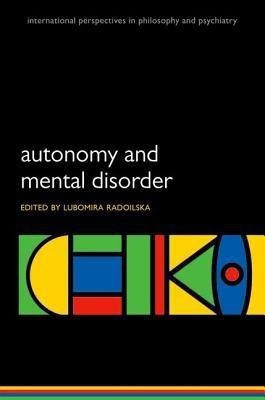Autonomy and Mental Disorder(English, Paperback, unknown)
Quick Overview
Product Price Comparison
Autonomy is a fundamental though contested concept. For instance, most of us place great value on the opportunity to make our own decisions and to be able to lead a life of our own choosing. Yet there is stark disagreement on what is involved in being able to decide autonomously, as well as how important this is compared with other commitments. For example, the success of every group project requires that group members make decisions about the project collectively rather than each on their own. This disagreement notwithstanding, mental disorder is routinely assumed to put a strain on autonomy. However, it is unclear whether this is effectively the case and, if so, whether this is due to the nature of mental disorder or of the social stigma that is often attached to it. Autonomy and Mental Disorder is the first exploration of the nature and value of autonomy with reference to mental disorder. By reflecting on instances of mental disorder where autonomy is apparently compromised, it offers a systematic discussion of the underlying presuppositions of the present autonomy debates. In so doing, it helps address different kinds of emerging scepticism questioning either the appeal of autonomy as a concept or its relevance to specific areas of normative ethics, including psychiatric ethics. Written by leading figures in philosophy and psychiatry, Autonomy and Mental Disorder will appeal to a wide range of readers in these and related disciplines. Lubomira Radoilska is Affiliated Lecturer in the Faculty of Philosophy at Cambridge University and Research Associate of the Uehiro Centre for Practical Ethics at Oxford University. She is the author of Aristotle and the Moral Philosophy of Today (2007).


